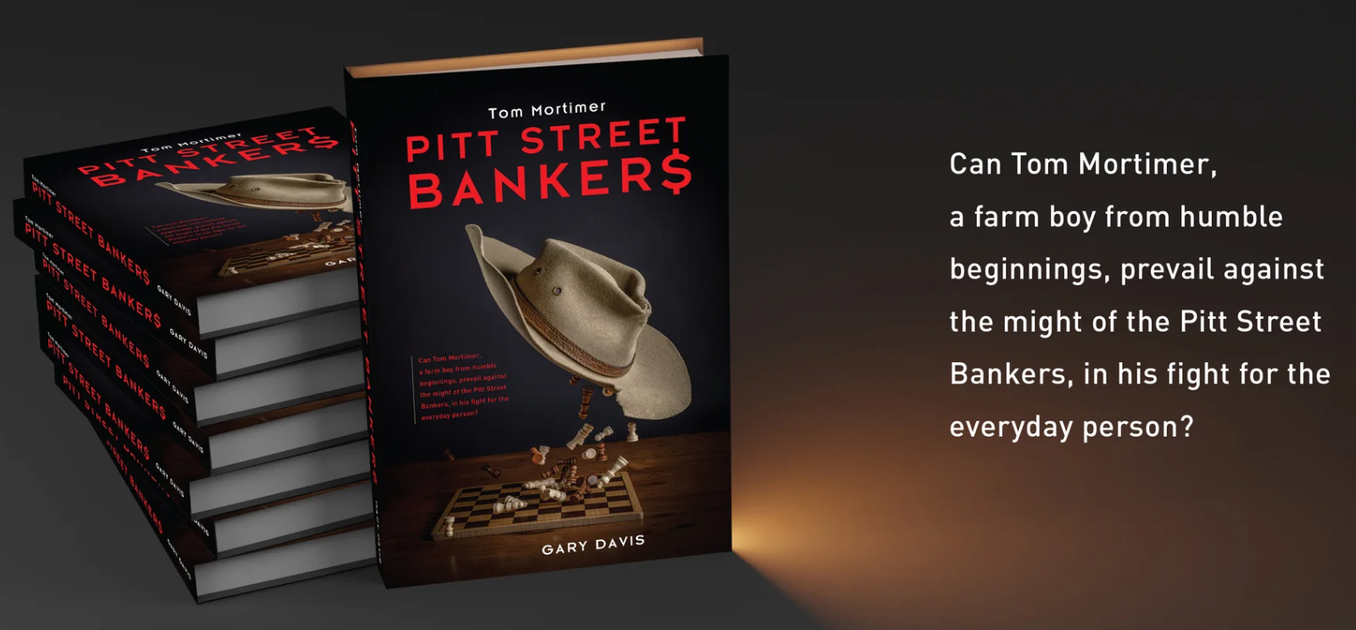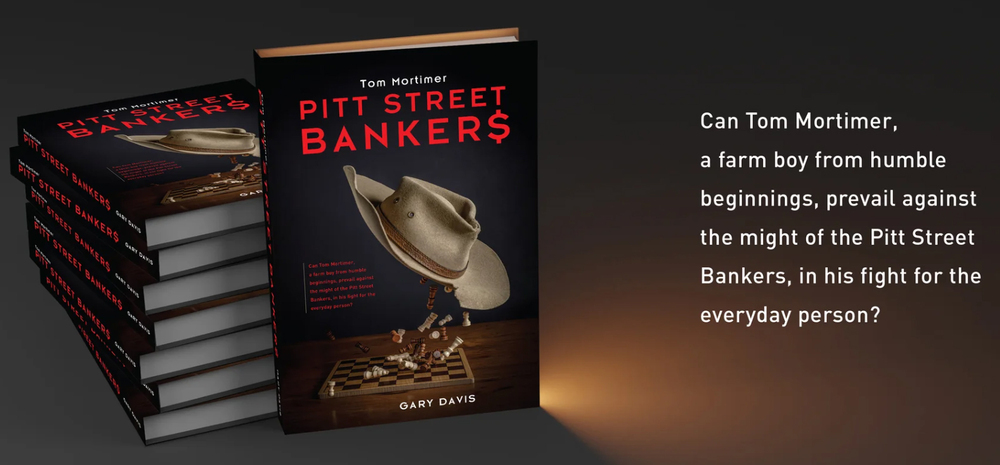Book review - Pitt Street Bankers
Kimberly Grabham
25 November 2024, 4:00 AM

Gary Davis, a former farmer from Lismore turned banker turned lawyer, recently toured the Riverina to promote his first book, Pitt Street Bankers.

The novel is a fictionalised account of how, in the 1980s, financial institutions harmed families through a foreign currency loan scheme. During his time in banking, Davis learnt the industry's inner workings.
This knowledge proved invaluable when he later became a lawyer and assisted those who had been victims of unethical financial practices.
He encountered five Australian families caught in a banking scheme that had gone awry.
Due to strict lending restrictions imposed by the Reserve Bank in the 1980s, Australian banks began offering loans in foreign currencies to farmers and small business owners as a way to bypass these limitations.
Interest rates at the time were very high, ranging from 18 to 24 percent. To make these foreign currency loans more enticing, banks offered them at a significantly lower interest rate, such as six percent for a Swiss Franc loan.
The banks actively promoted these loans to their customers. However, the banks failed to disclose the risks associated with exchange rate fluctuations.
Initially, one Australian dollar could buy two Swiss Francs, but at its highest point, the exchange rate reached parity.
This meant that borrowers who had taken out a $1 million loan now owed the banks $2 million.
Davis asserts that the banks were eager to offload their Swiss Franc holdings and therefore targeted vulnerable borrowers with these loans. These loans had devastating financial consequences for the borrowers.
One of Davis's clients, a third-generation dairy farmer, found himself in dire straits as a result of this scheme.
He was facing foreclosure by the National Bank. In 1987, Davis, representing the farmer, decided to sue the National Bank in the Supreme Court in Sydney.
Davis' small, local law firm took on the formidable task of challenging the bank.
The experience of this case and the foreign loan scheme as a whole stayed with Davis throughout his career.
It inspired him to write Pitt Street Bankers. Davis had always enjoyed writing, and this story had been on his to-do list for 40 years.
The onset of the COVID-19 pandemic provided him with the opportunity to finally pursue this long-held ambition.
At the age of 70, he began writing his first novel. Gary Davis' story is an inspiring one. It shows that it is never too late to chase your dreams and demonstrates the power of sharing stories that need to be told.
COMMUNITY
RURAL




